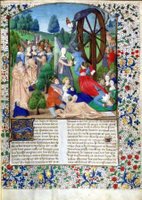While Ghanaian people seemingly walk everywhere, I was less likely to walk, not because of reluctance, but simply because where my hotel was in relation to places I wanted to see required getting transportation. Enter taxis. Taxis—taxis in Accra. Well, let’s just say that in my opinion while the Accra drivers could hold their own in New York City, the overall experience of a taxi ride is most interesting, unlike anything I have ever experienced.
First, there are the vehicles themselves. Many taxis are small cars. Most have multiple bashes and dents. (In fact on one ride, the taxi I was in got rear-ended in a minor bump, the driver got out, looked his bumper over, then drove on.) Almost all I rode in had cracked windshields (or windscreens, as the Brits would say). Many had fancy windshield wipers that at night were lit up with multiple color—sort of a neon wiper. And then there are the signs on the taxis—more on that in a bit.
Next, there is the whole ritual of getting a taxi. My daughter has mastered this routine. I wrote it down the first day and read my description to her. Her response was that while she hadn’t noted that she had such a set dialogue that I got the details right. First, as you stand along side the road and see a taxi coming you wave your hand with your arm down—almost like shushing the ground. The taxi pulls over—my daughter looks in the window saying to the driver—Hello, how are you? (Can you imagine asking that of a New York cabbie). The driver responds, I am well. Then she says—we are going to the restaurant (or wherever your destination is). The driver may look knowing or puzzled. She explains, It is near—and then gives a landmark or nearby establishment. By now the driver might say, I know where it is. He may or may not (I saw only male taxi drivers). Then she asks, How much? Remember the hyperinflation factor. So the driver might say, 40,000 cedis. To this, she says, Oh no, my friend, it is too much. It is close. I go there all the time; it is only 20,000 cedis. Once she said—you are asking obruni (white) price. Meaning, we are white and look like tourists, so presumably we wouldn’t know how much the ride should cost. If the driver persists on 40,000 cedis, she says, OK we get another car. And we walk away from the taxi. Sometimes, the driver relents, sometimes not. (No doubt, you have figured out the taxis are not metered, so the whole price interchange MUST occur before you get into the taxi.)

This entire exchange is most amicable. It is just a necessary precursor to actually taking a taxi somewhere. Once in the taxi, it is acceptable, perhaps even polite, to inquire of the driver, How are you? Or to exchange some pleasantry.
Of course, there is another form of readily available public transportation. These are the tro-tros. The best way to describe of tro-tro is to picture first a mini-van, with the usual interior seats removed, and in their place a double row of seats, very much like bus seats. Tro-tros are like miniature buses. There is even a large tro-tro station in Accra, a kind of traffic circle, where the interior of the whole circle is filled with tro-tros. Tro-tros go everywhere, both within Accra and to outer areas. They go between the towns. There is obviously a driver, but he is assisted by a mate who collects the money and who calls out the approximate stops. I did not ride in a tro-tro, so I am dependent on my daughter’s experience and the description at this site. One of the most entertaining things to do while riding in a taxi is to read the signs on the back of the tro-tros. Seemingly every tro-tro has some sign, homemade, posted on the back. Most of the signs are religious, many are in English, and a fair few at utterly incomprehensible—example, Beware of Friends.
 In fact, the religious signs are sprinkled all throughout Accra, on tro-tros, on taxis and on many business establishment and advertisement signs. The best example I have of a religious sign (having spent only a week in Accra, my experience is limited, and had I stayed longer, I am sure I would have a new “best”) was the taxi I took back to the hotel one night. The driver knew where I wanted to go, and my daughter had negotiated the price, but then the engine was reluctant to start. Finally, it sprang into life and off through the streets of Accra we went. The taxi sounded as though it would die at each intersection. Before I had gotten in the taxi, I saw the homemade sign on the back—IN GOD WE TRUST. Below it was a picture of Jesus, the shepherd holding a lamb. Of course, I got the hotel safely, asked the driver if I could take a photo of his sign. But as he pulled away, I thought—well, trust in God; yeah, that and a good mechanic!
In fact, the religious signs are sprinkled all throughout Accra, on tro-tros, on taxis and on many business establishment and advertisement signs. The best example I have of a religious sign (having spent only a week in Accra, my experience is limited, and had I stayed longer, I am sure I would have a new “best”) was the taxi I took back to the hotel one night. The driver knew where I wanted to go, and my daughter had negotiated the price, but then the engine was reluctant to start. Finally, it sprang into life and off through the streets of Accra we went. The taxi sounded as though it would die at each intersection. Before I had gotten in the taxi, I saw the homemade sign on the back—IN GOD WE TRUST. Below it was a picture of Jesus, the shepherd holding a lamb. Of course, I got the hotel safely, asked the driver if I could take a photo of his sign. But as he pulled away, I thought—well, trust in God; yeah, that and a good mechanic!






